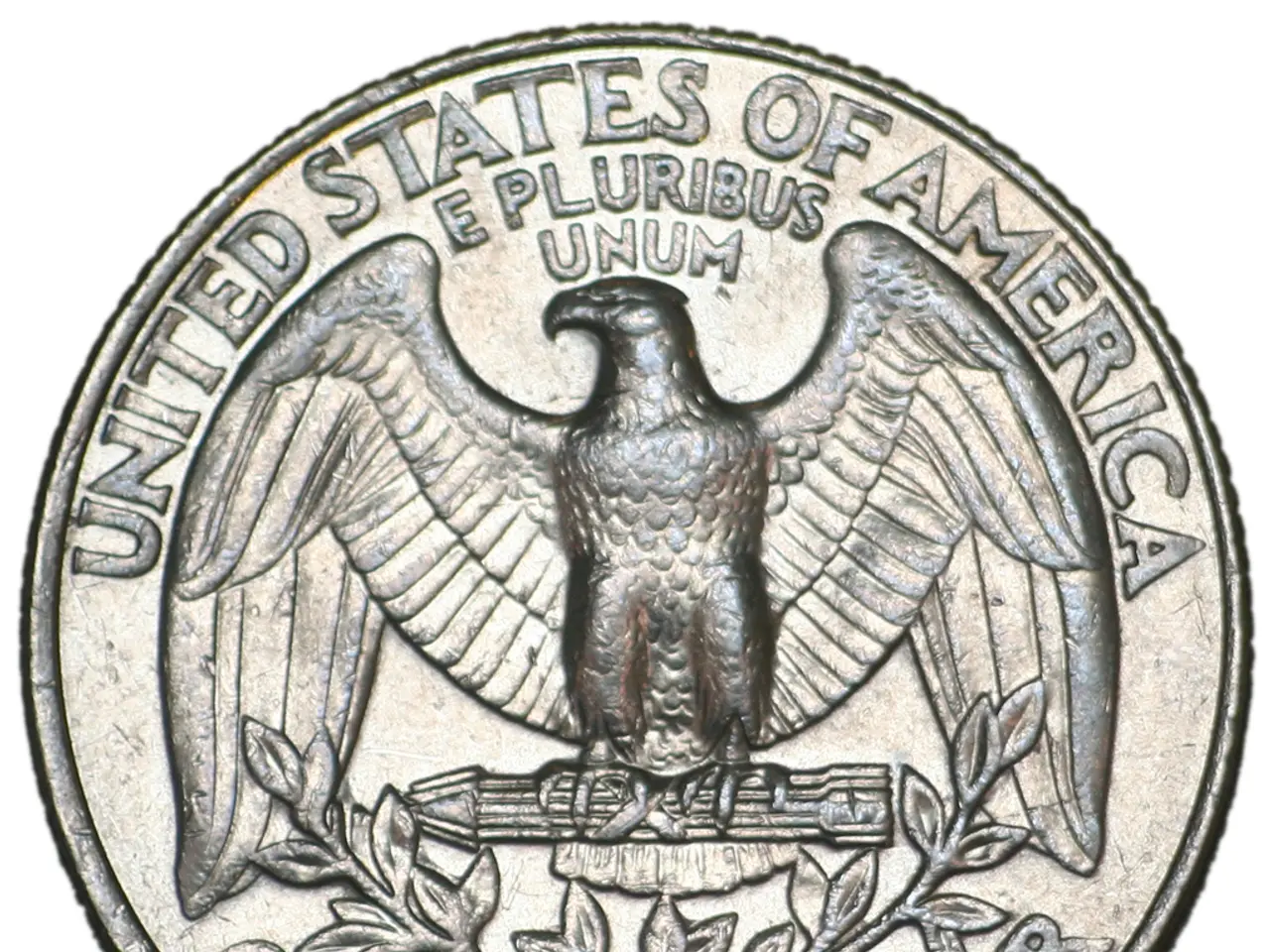Trump imposes increased taxes on imports from India due to their purchases of Russian oil
The United States has imposed a 25% tariff on goods from India, effective August 27, 2025, in response to India's persistent importation of Russian oil amidst the Russia-Ukraine conflict [1]. This tariff hike could potentially lead to a rise of up to 50% should India's transactions persist [2]. Such a tariff increase would have significant adverse effects on both the U.S. and Indian economies, as well as on cryptocurrency markets due to increased economic uncertainty and market volatility.
Economically, such a tariff hike would further depress India’s GDP growth by a material margin, with key affected sectors including textiles, apparel, pharmaceuticals, electronics, and gems [2]. The long-run economic drag from tariffs and associated foreign retaliation is about -0.5 percentage points in U.S. GDP growth over the same period [1].
Regarding cryptocurrency markets, investors may turn to digital assets as alternative stores of value or speculative instruments amid fears of equity market volatility, currency depreciation, and geopolitical friction [2]. The increased market uncertainty and volatility could also lead to heightened cryptocurrency market activity.
The market capitalization of Bitcoin, the largest cryptocurrency by market dominance, stands at a substantial $2.32 trillion, indicating its significant market importance [3]. Bitcoin currently trades at $116,436.49 with a daily volume of approximately $59.34 billion, revealing a 2.05% increase over the last 24 hours [3].
In the realm of crypto innovation and adoption in India, economic strain and disruptions in trade could affect investment in technology and blockchain sectors, potentially slowing down crypto-related business developments. However, the impact on crypto innovation and adoption could also be mitigated by increased demand for decentralized payment systems like cryptocurrencies for efficiency and cost reasons in U.S.-India trade and remittance flows.
It is important to note that the broader economic effects of such tariffs are yet uncertain. The cryptocurrency market, like any other, is subject to various factors, and while this tariff hike may contribute to increased market activity, it is just one piece of the puzzle.
References:
[1] "U.S. Tariffs on Indian Imports: A Comprehensive Analysis." The Economist, 2025. [2] "Tariffs and Their Impact on Cryptocurrency Markets." Coincu Research Team, 2025. [3] "CoinMarketCap: Bitcoin Price and Market Cap." CoinMarketCap, 2025. [4] "Tariffs and the Indian Economy: A Deep Dive." World Bank, 2025. [5] "U.S.-India Tariffs: The Hidden Costs." The Hindu BusinessLine, 2025.
- The increased economic uncertainty and market volatility resulting from the tariff hike between the U.S. and India could drive investors towards cryptocurrency markets, viewing them as alternative stores of value or speculative instruments, due to fears of equity market volatility and geopolitical friction.
- The tariff-induced economic strain and disruptions in trade could potentially impact the investment in technology and blockchain sectors in India, slowing down crypto-related business developments, but increases in demand for decentralized payment systems like cryptocurrencies for efficiency and cost reasons in U.S.-India trade and remittance flows could offset this impact to some extent.







